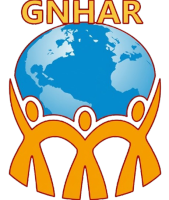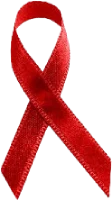GNHAR is an investigators-initiated program evolved during the International Conference on Cellular and Molecular Biology and Therapeutics of HIV and associated viral infections held during Jan 12-14, 2007 at the University of Hyderabad, Hyderabad, India. The formation of such a network of basic and clinical scientists would help building global partnerships, collaborations and cooperation in advancement of our efforts in emerging infections, cancer and AIDS.
The online discussion forum would enable the patients, students and NGOs to interact in the area of human health including emerging infections, cancer and AIDS in exchange of information and understanding of current basic and clinical research outcome and capacity building in our fight against these clinical conditions. Since it is an online interactive platform, it will reduce stigma and broaden the understanding of the disease dynamics along with current prevention and treatment approaches available for the community.
Further, recently introduced feature reporting “Emerging Research” is a monthly online peer-reviewed short reports by clinical practitioners and researchers in various fields of learning and communication related to emerging diseases and good health for sustainable development.
Basic and Clinical researchers are invited to submit a short report of their observations in 1- 2 A4 size papers with upto 2 figures or tables. These reports will be peer reviewed. Accepted reports will be published online. The topics in various fields of learning and communication related to good health and disease including emerging diseases, cancer and good health for sustainable development. Both scientific and social science aspects are covered in these reports.
Resources
- International Decade of Science for Sustainable Development
- Identifying Future Disease Hot Spots: Infectious Disease Vulnerability Index
- Infectious disease resilience
- Developing resilience against the threat of infectious diseases and anti-microbial resistance
- LEARNING FROM PANDEMIC COVID-19 TOWARD AGEING SOCIETIES IN INDONESIA
- Social resilience and risk society analysis model of the COVID 19 pandemic
- A checklist to improve health system resilience to infectious disease outbreaks and natural hazards
- Infectious disease resilience
- When the Next Disease Strikes: How To Communicate (and How Not To)
- Risk and Outbreak Communication
- Risk Communications
- Risk communication as a core public health competence in infectious disease management: Development of the ECDC training curriculum and programme
- Community engagement and vulnerability in infectious diseases: A synthetic review and qualitative analysis of the literature
- Addressing Emerging Infectious Disease Threats: A Prevention Strategy for the United States Executive Summary
- Emerging infectious diseases: vulnerabilities, contributing factors and approaches
- Communicating the threat of emerging infections to the public
- Risk and Outbreak Communication
- Here there be dependencies: Putting cancers’ vulnerabilities on the map
- Cancer vulnerabilities unveiled by genomic loss
- Exploiting Vulnerabilities in Cancer Cells and TME for Therapeutic Benefit
- Targeting cancer’s vulnerabilities
- From prospective clinical trial to reducing social inequalities in health: The DESSEIN trial, concept and design of a multidisciplinary study in precarious patients with breast cancer
- Precarity, Precariousness, and Vulnerability
- Precarity and Hope at the Intersections of HIV and Cervical Cancer in a Johannesburg Clinic
- Telling cancer story: Precarious neighborhoods and health trajectory
- Resilience in the Face of Cancer: On the Importance of Defining and Studying Resilience as a Dynamic Process of Adaptation
- Resilience in cancer patients
- Promoting resilience among adult cancer patients: An integrative review of patient education methods
- Resilience in cancer patients and how it correlates with demographics, psychological factors, and lifestyle
- Strengthening Resilience and Adaptive Capacity to Disasters in Cancer Control Plans: Lessons Learned from Puerto Rico
- Communicating cancer risk in the primary care consultation when using a cancer risk assessment tool: Qualitative study with service users and practitioners
- Co-Creation of Breast Cancer Risk Communication Tools and an Assessment of Risk Factor Awareness: A Qualitative Study of Patients and the Public in India
- Communicating tailored risk information of cancer treatment side effects: Only words or also numbers?
- Cancer Risk Communication—What We Need to Learn
- Understanding is in the mind of the beholder - communicating cancer risk across different audiences
- Infectious Diseases in Adults 2025 April 28 – May 2, 2025
- Climate change and diseases
- Over half of known human pathogenic diseases can be aggravated by climate change
- Climate change & infectious diseases in India: Implications for health care providers
- Climate change and noncommunicable diseases: connections
- Climate Impacts on Human Health
- The deadly diseases that are spiking because of climate change
- Getting Back on Track: Lessons on Resilience and Perseverance
- Indicators of disease resilience from complete blood count and in vitro immunoassays data from young-healthy pigs
- Alzheimer’s Disease Resilience: Investigating the Role of Microglia
- Heart Disease Prediction Using Machine Learning Method
- Genome-wide association study of disease resilience traits from a natural polymicrobial disease challenge model in pigs identifies the importance of the major histocompatibility complex region
- Global high-level technical meeting on noncommunicable diseases in humanitarian settings: building resilient health systems, leaving no-one behind
- Immune Resilience & Autoimmune Disease Advanced Practice Module
- Anxiety and burnout in infectious disease nurses: the role of perceived stress and resilience
- Resilience, disease and the age of single cell science

